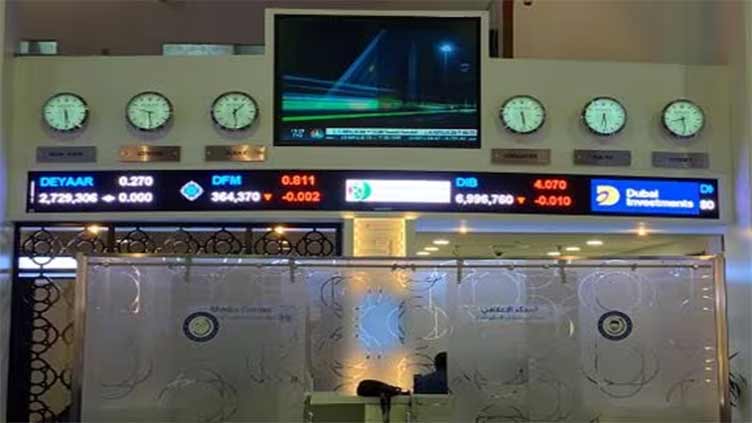After Hamas’ incursion into Israel on Oct. 7 jolted world markets, an oil surge has reversed, global stocks are now broadly flat and bets on a humanitarian crisis spiraling into a wider regional conflict seem to have faded.
Israel agreed on Thursday to pause operations in northern Gaza for four hours a day according to the US White House but risks remain and heavy trading in a range of asset classes from weapons stocks to niche Middle East debt insurance suggest markets have not moved on from fear quite yet.
As investors debate a range of scenarios, here are some assets flashing warning signals and those that may have wild swings ahead.
1/ OPTIONS OPEN
Oil prices are below where they were before Oct. 7. Derivatives markets tell a different story.
Bets on oil prices moving up from here are at their highest level since Russia’s 2022 invasion of Ukraine, CME options market volatility data shows.
Average daily volumes in energy options of the CME exchange overall are the highest since an all-time record in 2018.
“The aftermath of the attacks and rising Middle East tensions did not impact oil prices as many investors expected, including ourselves,” Unigestion multi-asset portfolio manager Sandrine Perret said.
“The market is telling you that it’s much more concerned about the next $10 rise in oil and the next $50 up move in gold than it is the next $10 or $50 move down,” CME’s head of commodities, options and international markets, Derek Sammann.
Gold has dropped more than $50 an ounce after hitting $2,000 last week.
2/ DEBT DANGERS
Signs so far that the conflict is contained have helped Israel’s bonds and those of neighbours Jordan and Egypt recover from post-attack falls.
Israel credit default swaps (CDS) – which traders use to insure their exposure to the country – express more pessimism. The price of these illiquid instruments matches that typically paid to insure against default by a country on the cusp of being downgraded to a junk credit rating.
Israel’s AA-rating is 6 notches above what CDS pricing implies.
“Are we out of the woods in terms of the risk of a tail event? I would say no,” Aegon Asset Management’s head of emerging market debt Jeff Grills said.
3/ DEFENCE STOCKS
A gauge of defence stocks compiled by index provider MarketVector is 8% higher in the four weeks since the conflict began.
This is a sector that, like gold, could well fall out of favour if Middle East hostilities cease but having outperformed global stocks since China stepped up military pressure on Taiwan in May, remains viewed as a long-term winner.
“We would be prepared to tolerate some volatility,” said Mikhail Zverev, a portfolio manager at Amati Global Investors, who has around 13% of his fund in defence and security stocks and said he plans to back innovative companies in this industry long term.
“Defence spending has to increase,” added Ron Temple, chief market strategist at Lazard Asset Management. “It’s hard for me to see anything other than a positive revenue trajectory for these (defence) companies.”
4/ SAFEST CURRENCY?
The safe haven Swiss franc has been the best performing major currency against the dollar since Oct. 7. It’s also near eight-year highs versus the euro and therefore another asset class attracting questions about how it would perform if Middle East tensions are resolved.
A bid in its favour: Switzerland’s central bank is selling foreign currency reserves to shrink its vast balance sheet.
“From a longer-term perspective the Swiss franc is very expensive,” said Francesca Fornasari, head of currency at Insight Investment. “In the shorter term, the safe-haven bid and balance sheet reduction are a big support.”
If war escalates, Fornasari said, the euro’s performance against the dollar is worth watching.
“A flight to safety bid helps the dollar and you have the fact the euro area is an energy importing region.”
5/ EURO CREDIT
The resilience of corporate bonds, already tested by aggressive rate hikes and slowing growth, could be challenged further if oil rises again – especially in a Europe reliant on energy imports.
“US credit should prove more resilient over EU credit in a more pronounced war scenario,” said Generali Investments senior credit strategist Elisa Belgacem.
The perceived riskiness of European junk debt, shown by the additional income yield investors demand to lend to the weakest borrowers over risk-free assets, often tracks Brent crude.
Post Views: 49


 Sports3 months ago
Sports3 months ago
 Sports3 months ago
Sports3 months ago
 Fashion3 months ago
Fashion3 months ago
 World3 months ago
World3 months ago
 World3 months ago
World3 months ago
 Sports2 months ago
Sports2 months ago
 Sports2 months ago
Sports2 months ago
 World3 months ago
World3 months ago



















